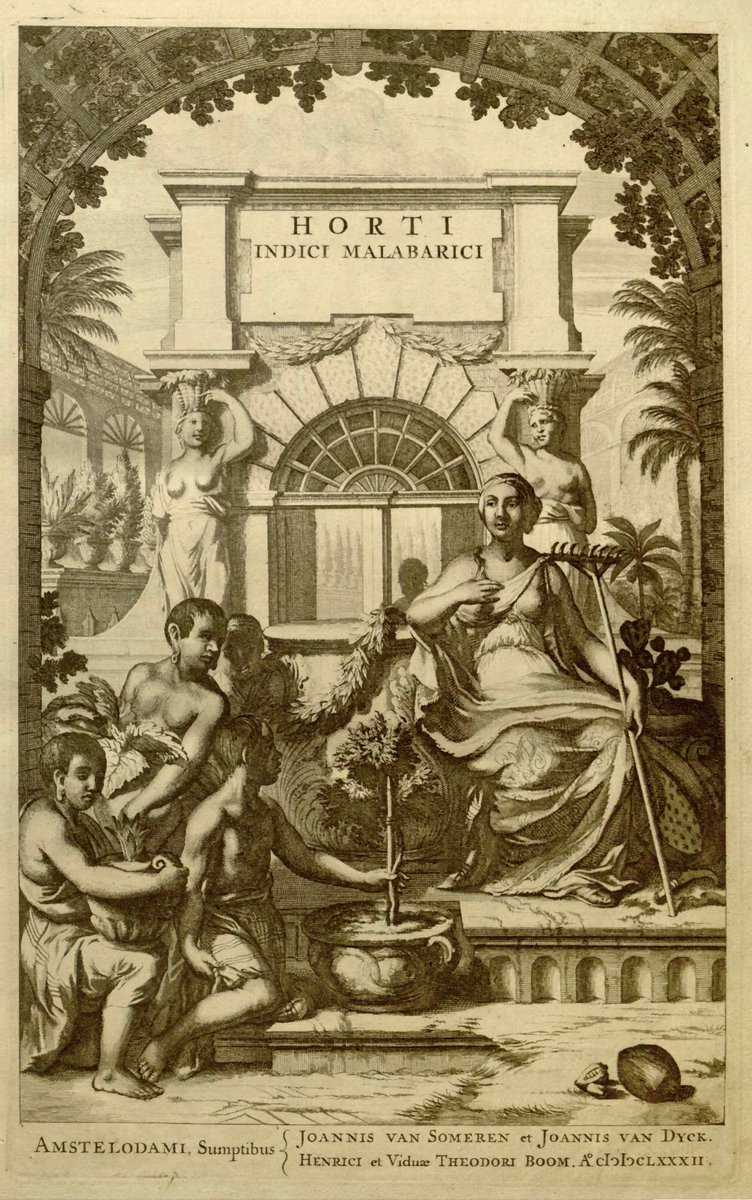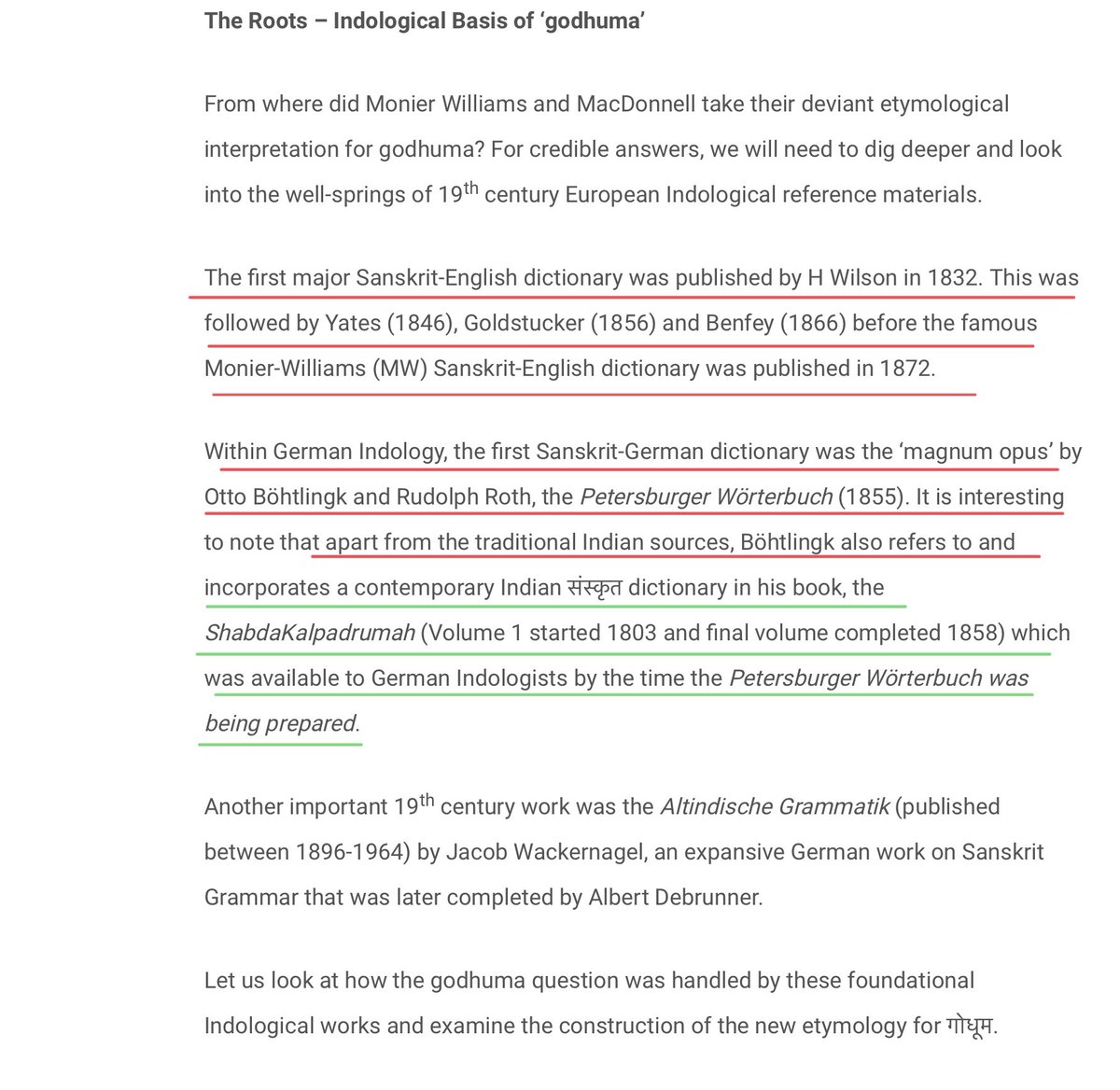
Hunters । शापाः । Itihasa
A recent tweet mentioned how Western critics ignorantly claim ‘tragedy’ is absent in भारतीय इतिहासकाव्यानि
Let us see if the Western claim is true
Our Itihasas are replete with examples of tragedies-innocuous events spiraling wildly out of control
A recent tweet mentioned how Western critics ignorantly claim ‘tragedy’ is absent in भारतीय इतिहासकाव्यानि
Let us see if the Western claim is true
Our Itihasas are replete with examples of tragedies-innocuous events spiraling wildly out of control

Take hunters & curses
Numerous episodes involve wayward hunters, hurled imprecations & unleashed chains of Karma that changed the course of events in uncontrollable ways
Also sparking off brilliant & beautiful Kavyas, Itihasas & Puranas
Let us explore 5 interesting episodes!
Numerous episodes involve wayward hunters, hurled imprecations & unleashed chains of Karma that changed the course of events in uncontrollable ways
Also sparking off brilliant & beautiful Kavyas, Itihasas & Puranas
Let us explore 5 interesting episodes!
#1 आदिकाव्यम् & आदिकविः।
Starting from the very beginning, the AdiKavya, Ramayana
Maharshi Valmiki, while taking a dip in the Tamasa river sees a krauncha couple shot-down by a wayward hunter
At the close of this scene, he hurls the famous imprecation मा निषाद !
Starting from the very beginning, the AdiKavya, Ramayana
Maharshi Valmiki, while taking a dip in the Tamasa river sees a krauncha couple shot-down by a wayward hunter
At the close of this scene, he hurls the famous imprecation मा निषाद !

This beautiful & heart-rending scene is captured here
पतिना सहचारिणा ताम्रशीर्षेण मत्तेन…….निहतं महीतले वेष्टमानं शोणित….दृष्ट्वाकरुणां गिरं रुराव।
Separated from her winged, copper-crested companion, drenched in blood and intoxicated in love, she lets out a piteous wail



पतिना सहचारिणा ताम्रशीर्षेण मत्तेन…….निहतं महीतले वेष्टमानं शोणित….दृष्ट्वाकरुणां गिरं रुराव।
Separated from her winged, copper-crested companion, drenched in blood and intoxicated in love, she lets out a piteous wail




The perturbed poet finds an inspired outlet for his Shoka (deep sorrow) by composing the first Shloka that ultimately leads to the Ramayana
शोकार्तस्य प्रवृत्तः मे श्लोको भवतु नान्यथा।
He specifically defined Shloka as पादबद्धोऽक्षरसमस्तन्त्रीलयसमन्वित।
शोकार्तस्य प्रवृत्तः मे श्लोको भवतु नान्यथा।
He specifically defined Shloka as पादबद्धोऽक्षरसमस्तन्त्रीलयसमन्वित।

So we see that the inspiration for Ramayana & the very concept of Shloka itself arose from an episode involving a hunter & a curse
Tragedy giving rise to beauty here..
Tragedy giving rise to beauty here..
#२ Dasharatha’s Careless Arrow
Ramayana’s arc is intimately connected to another hunting episode involving दशरथः
In a deliciously painted fractal scenario, Valmiki reprises his own experience when he describes Dasharatha on a hunt, along the banks of the same Tamasa River!
Ramayana’s arc is intimately connected to another hunting episode involving दशरथः
In a deliciously painted fractal scenario, Valmiki reprises his own experience when he describes Dasharatha on a hunt, along the banks of the same Tamasa River!
Dasharatha hearing what he thought ‘sound of elephants’, shoots by mistake an young ascetic collecting water from the river!
The blind parents, forest-dwellers, devastated, curses Dasharatha
त्वामप्येतादृशो भावः क्षिप्रमेव गमिष्यति, leading to the familiar chain of events.
The blind parents, forest-dwellers, devastated, curses Dasharatha
त्वामप्येतादृशो भावः क्षिप्रमेव गमिष्यति, leading to the familiar chain of events.

The Adikavi describes the frightening & gut-wrenching scene movingly
A confident Dasharatha, supremely sure of his ability to aim at ‘mere source of sounds’, letting loose a volley that inexorably finds its tragic mark..that gets events spinning out of control…



A confident Dasharatha, supremely sure of his ability to aim at ‘mere source of sounds’, letting loose a volley that inexorably finds its tragic mark..that gets events spinning out of control…




A guilt stricken Dasaratha decides to break the news to the blind and old parents in their hermitage
A beautiful sequence of poetry follows
..and Dasaratha receives the curse that leads to the tumultuous events magnificently described in the Ramayana



A beautiful sequence of poetry follows
..and Dasaratha receives the curse that leads to the tumultuous events magnificently described in the Ramayana




The same incident is captured by the inimitable Kalidasa in the Raghuvamsam
दिष्टान्तमाप्स्यति भवानपि पुत्रशोकादन्त्ये वयस्यहमिव…..
You will also, in your old age, face death like me, filled with Putra-Shoka !



दिष्टान्तमाप्स्यति भवानपि पुत्रशोकादन्त्ये वयस्यहमिव…..
You will also, in your old age, face death like me, filled with Putra-Shoka !




#3 Pandu’s Deliberate Shot
Mahabharata, the ‘Panchamaveda’ has chains of events intertwined with hunting mishaps
Pandu, engrossed in a hunt, see a deer couple in maithuna & decide to shoot them
Turns out it was the Muni किंदम & his wife frolicking in the shape of deers.

Mahabharata, the ‘Panchamaveda’ has chains of events intertwined with hunting mishaps
Pandu, engrossed in a hunt, see a deer couple in maithuna & decide to shoot them
Turns out it was the Muni किंदम & his wife frolicking in the shape of deers.


The crestfallen Kimdama curses Pandu
वर्तमान सुखे दुःखं यथाहं प्रापितस्त्वया
तथा त्वां च सुखं प्राप्तं दुःखमभ्यागमिष्यति।।
Kimdama’s famous curse leads to Pandu’s enforced brahmacharya, the peculiar circumstances behind birth of Pandavas & the all the events since….
वर्तमान सुखे दुःखं यथाहं प्रापितस्त्वया
तथा त्वां च सुखं प्राप्तं दुःखमभ्यागमिष्यति।।
Kimdama’s famous curse leads to Pandu’s enforced brahmacharya, the peculiar circumstances behind birth of Pandavas & the all the events since….

#4 Pariskhit’s Death Foretold
Yet another hunting mishap leads to the episode of Takshaka killing the lone remaining Pandava descendant, Parikshit, son of Abhimanyu
To avenge this, the Sarpasatra was consequently conducted by Parikshit’s son Janamejaya to destroy all Nagas!

Yet another hunting mishap leads to the episode of Takshaka killing the lone remaining Pandava descendant, Parikshit, son of Abhimanyu
To avenge this, the Sarpasatra was consequently conducted by Parikshit’s son Janamejaya to destroy all Nagas!


In a delicious fractal irony (too many of them in the Itihasas !), it was at this very same Sarpasatra that the Mahabharata is narrated by Vaishampayana, the disciple of Veda Vyasa, for the very first time…. 

Parikshit on a hunt gets really tired & thirsty pursuing his prey across deep jungle comes across Muni Shamika meditating in Mouna_Vrata
Frustrated on receiving silence to his queries, Parikshit takes a dead snake with his Dhanushkoti & places it on the Muni’s shoulders
Frustrated on receiving silence to his queries, Parikshit takes a dead snake with his Dhanushkoti & places it on the Muni’s shoulders

Shamika’s hot-headed son, Shringi, on hearing about this insult to his father, curses Parikshit
“Takshaka, the Naga par-excellence will cause Parikshit’s death within 7 nights - सप्तरात्रादितो नेता यमस्य सदनं प्रति”
This again sets the wheels of tragic consequences in motion..


“Takshaka, the Naga par-excellence will cause Parikshit’s death within 7 nights - सप्तरात्रादितो नेता यमस्य सदनं प्रति”
This again sets the wheels of tragic consequences in motion..



This foretold death of Parikshit causes Janamejaya to arrange the famous SarpaSatra and hence the beginning of the Mahabharata!
Talk about tragic twists & turns caused by seemingly commonplace errors (here in hunting) that have consequences that leads to Pralaya !
Talk about tragic twists & turns caused by seemingly commonplace errors (here in hunting) that have consequences that leads to Pralaya !
#5 Kali Yuga Begins
Kaliyuga starts with an act of a wayward hunter, Jara who accidentally shot the योगयुक्तं शयानम् Bhagvan ShriKrishna on the sole of the feet, mistaking him for a sleeping prey
As is usual, these events were also foretold, a consequence of chains of Karma
Kaliyuga starts with an act of a wayward hunter, Jara who accidentally shot the योगयुक्तं शयानम् Bhagvan ShriKrishna on the sole of the feet, mistaking him for a sleeping prey
As is usual, these events were also foretold, a consequence of chains of Karma

Gandhari’s curse conveyed to Krishna directly led to the destruction of the Yadavas
Samba, Krishna’s son plays a prank on visiting Rishis & is then cursed to give birth to an iron pestle
Krishna knowing the future instructs the iron pestle to be ground to dust and cast into sea
Samba, Krishna’s son plays a prank on visiting Rishis & is then cursed to give birth to an iron pestle
Krishna knowing the future instructs the iron pestle to be ground to dust and cast into sea

Some of the powdered metal is swallowed by a fish which happen to be caught by Jara, the hunter
Jara fashions an arrow with the same metal
This arrow is the one that the hunter shot
And inaugurated Kali Yuga


Jara fashions an arrow with the same metal
This arrow is the one that the hunter shot
And inaugurated Kali Yuga



So hunters, curses and tragedies - events that spiral and end in Pralaya - starting off from minor errors of judgement - all woven together in beautiful prose and poetry - to exemplify and embody Dharma!
त्रुटिरस्ति चेत् क्षम्यताम्।🙏🏼
जयतु संस्कृतम्। जयतु भारतम्।
त्रुटिरस्ति चेत् क्षम्यताम्।🙏🏼
जयतु संस्कृतम्। जयतु भारतम्।
• • •
Missing some Tweet in this thread? You can try to
force a refresh
















